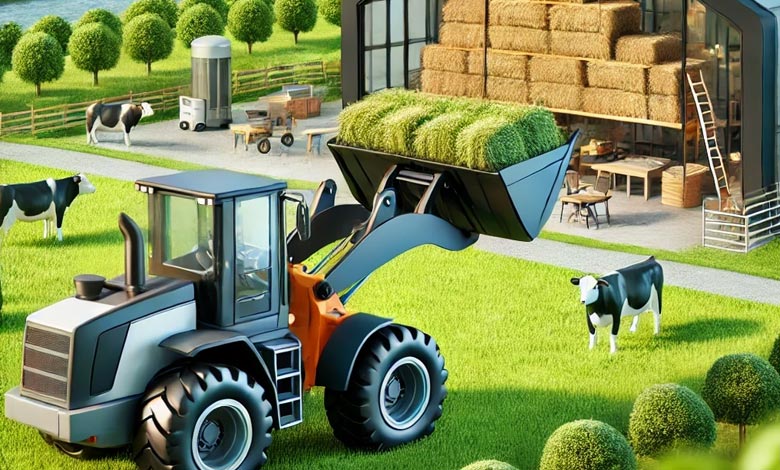Introduction
As the agricultural industry evolves, the demand for sustainable and efficient machinery is growing. Traditional diesel-powered loaders have long been used on farms, but with increasing environmental concerns and rising fuel costs, electric wheel loaders are emerging as the preferred alternative. This article explores how electric loaders are transforming modern farming, providing benefits in efficiency, cost savings, and environmental impact.
The Role of Loaders in Agriculture
- Transporting and distributing feed for livestock
- Handling manure and agricultural waste
- Moving soil, fertilizer, and harvested crops
- Assisting in farm infrastructure maintenance
Given the wide range of applications, having a reliable and cost-effective loader is essential for farm productivity.
Key Benefits of Electric Loaders for Farming
1. Eco-Friendly and Zero Emissions
One of the most significant advantages of electric loaders is their environmental benefit. Unlike diesel-powered machines, electric loaders produce zero emissions, reducing the farm’s carbon footprint and contributing to cleaner air. This is especially important for indoor farming operations and livestock environments where air quality can impact animal health.
2. Lower Operating Costs
Electric loaders offer significant cost savings in the long run. While the initial investment might be higher than a traditional diesel loader, lower fuel and maintenance costs quickly offset the difference. Electricity is generally cheaper than diesel, and with fewer moving parts, electric loaders require less frequent repairs and servicing.
3. Reduced Noise Pollution
Agricultural environments, especially livestock farms, benefit greatly from the low noise levels of electric loaders. Unlike diesel engines that generate loud noise, electric motors operate quietly, minimizing disturbances to animals and improving the working environment for farm operators.
4. Improved Efficiency and Performance
Advancements in battery technology have significantly enhanced the performance of electric loaders. Modern models offer sufficient battery life to last through a full day’s work, with fast-charging capabilities ensuring minimal downtime. Additionally, electric motors provide instant torque, making these machines highly responsive and efficient in operation.
5. Government Incentives and Sustainability Goals
Many governments and agricultural agencies are offering incentives and subsidies for farms that adopt electric equipment. Investing in electric loaders can help farmers comply with evolving environmental regulations while benefiting from financial support programs that encourage sustainable practices.
Conclusion
Electric wheel loaders are revolutionizing agriculture by offering a cleaner, more cost-effective, and efficient alternative to traditional diesel models. As battery technology continues to improve and sustainability becomes a priority, more farms will benefit from making the switch to electric machinery. Now is the time for farmers to consider integrating electric loaders into their operations, reducing costs, improving efficiency, and supporting a greener future for agriculture.

